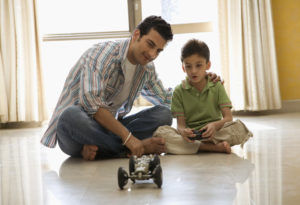We are the transitional generation…
Last Tuesday evening I presented to a group of parents from Inglewood Parent Participation Preschool on the topic of Anxiety and Transitions. In the discussion period, we discussed the different styles of parenting and how our generation is the transitional generation. Our parents did the best they could with the knowledge they had, but research on child development has since exploded, and we now know a lot more about different parenting styles and understanding each child as a unique individual according to his/her temperament.
“Old School” Parenting (in general)
- Fathers were not as involved, particularly at the baby-stage (rules of society perpetuated this as fathers were not allowed in the delivery room)
- Authoritarian strict/fear-based parenting style (including spanking) – parents didn’t have the benefit of the wealth of resources and research available to us today
“New School” Parenting (in general)
- Connected, more attuned to each child’s individual needs (thanks to research on attachment, temperament etc.)
- Logical consequences (vs. physical punishment)
- Authoritative (not permissive)
- Fathers more involved (fathers can now be in the delivery room and sleep with the mother and baby in hospital)
- Parenting books, workshops, internet resources now available
All week, whether it’s been with friends, conversations at school or on the soccer field, I seem to have had conversations with people that have focused on the changes in parenting since we were young. At the soccer field, a father of two young children told me how he vividly remembers the first time a male teacher put a hand on his shoulder in high-school to say “well-done” and how strange he felt. He said it felt supportive but foreign, as his own father had never had any positive physical contact with him, only negative. Now as a father himself, he’s at all his son’s games giving him hugs of encouragement. Another mother tells me about her child starting pre-school, and how she’s been spending time at the back of the classroom (hiding amongst the jackets and hooks!) giving her child smiles of reassurance whenever she looks back – our parents were not allowed in the classroom when we were children.
Creating New Attachment Relationships at School
We now know that different children have different needs, and some will need more support as they start a new school environment.
Being a pre-school and primary school teacher fifteen years ago, I remember the students who cried as they said “good-bye” to the parents as the classroom was door was closed. I was then left to try and comfort these children and build a relationship with them while they were in a stressed state. Now I realize that these children would have benefited from gradual entry (where one slowly increases the amount of time a child stays at school), and from having a parent stay with them in the classroom until they felt comfortable and attached to the teacher. I wish I would have known then, what I now know about linking the separation.
Last week I was called into a classroom where a young boy was very upset and distressed. He wouldn’t let anyone talk to him or even give him a tissue for all his tears. The teacher took the rest of the students on a tour of the school and I stayed with the sad and scared boy, but even 1:1 he was too upset for any kind of interaction. Once the class returned, I suggested to the teacher that we ask his parent to come in to the classroom to help him feel more comfortable and decrease his over-aroused state. I found his mother outside and she was more than willing to come in to the classroom. As soon as she hugged him, he hugged her, cried more tears and was then able to calm down and eat snack with the others. She stayed with him for another hour and then she was able to leave without him being upset. The teacher felt badly that she had not invited the mother to stay in the first place, but it seems as though many people are still not sure if this is the “right” thing to do, and need permission to follow a more connected/attachment focused approach.
Parenting from the Heart
For teachers and parents, we are in a time of transition and therefore we sometimes second guess ourselves. There is worry of being judged by others for being too soft, when really one is being more attuned to the needs of one’s child. I’m not advocating “helicopter” parenting, nor coddling and I definitely believe that children need limits and need to experience adversity.
However, I also believe that it is not healthy for a child to be in a “flooded” (alarmed) state for an extended period of time, and scientific research is demonstrating this. Parents know their children better than anyone else and it is therefore important that they parent with their hearts, follow their instincts, and use scientific research to feel validated.
Vancouver-based psychologist, Dr. Gordon Neufeld has given many North American parents permission to parent from an attachment lens. Dr. Stuart Shanker from York University in Ontario is now spreading the word about self-regulation. If a child is not regulated, he/she will not be functioning in an optimal state. If a child is over-aroused or under-aroused, we need to use strategies to get our child into a regulated, calm and alert state, in order that learning can take place.
If our children have anxiety, sensory issues, or other unique needs, we need to be pro-active and book appointments with teachers to inform them about our child’s temperament and brainstorm together on what strategies could work best.
Have a great, connected week!
Warmly,
My 6 Top Apps for Creating More Calm for You and Your Children!
Want to Connect?
Subscribe now to receive free weekly parenting tips and inspiration.








